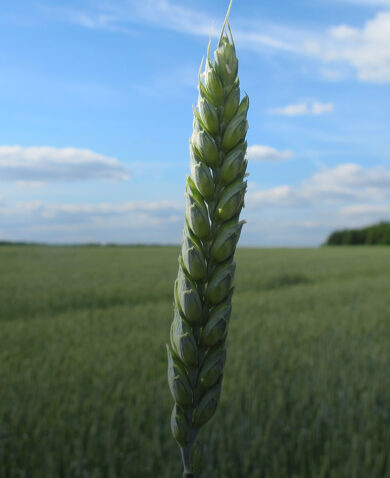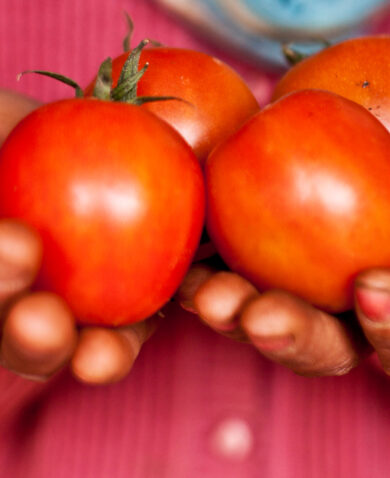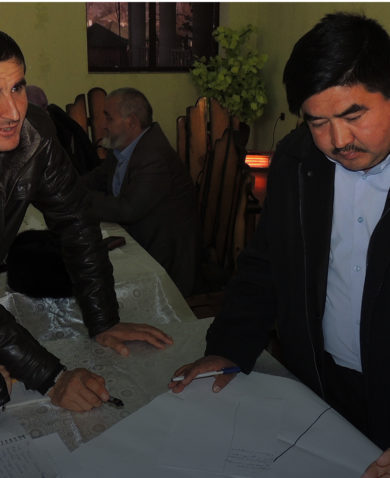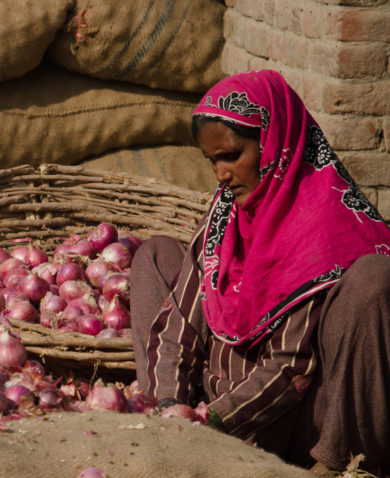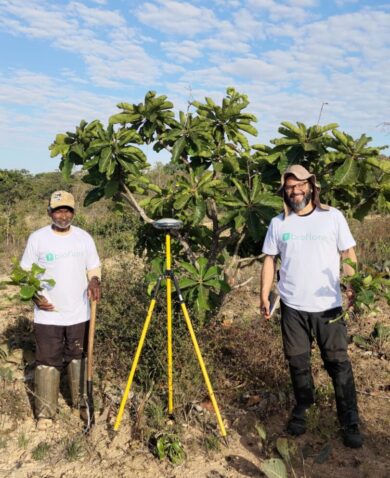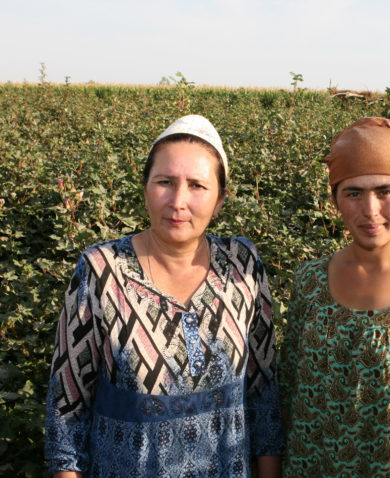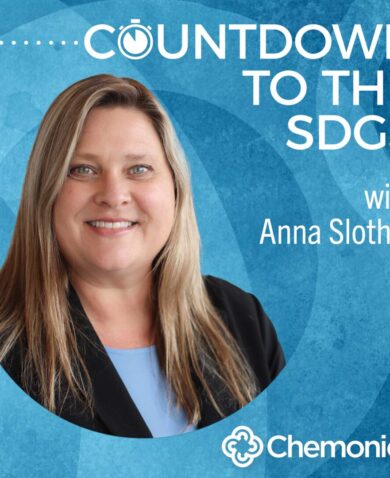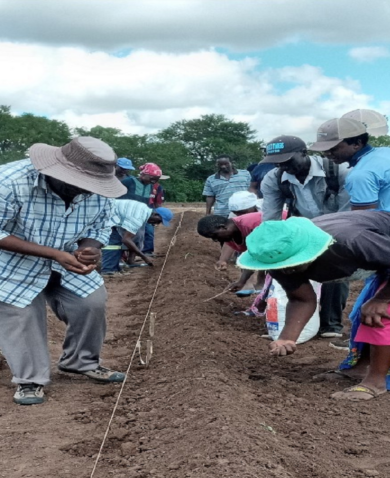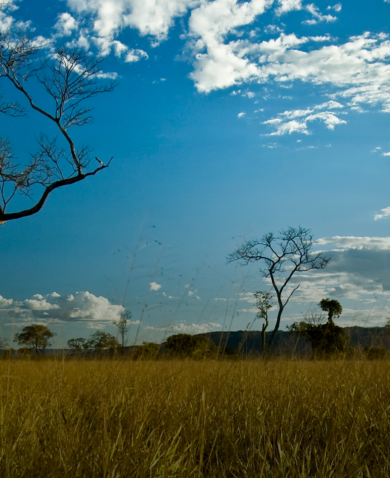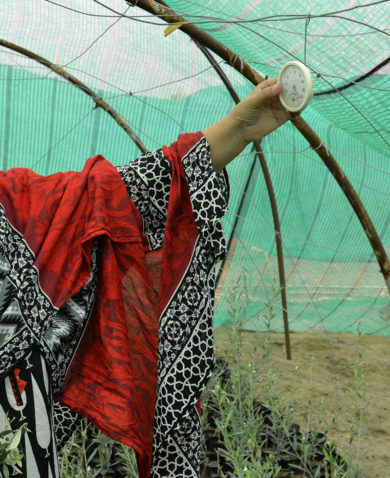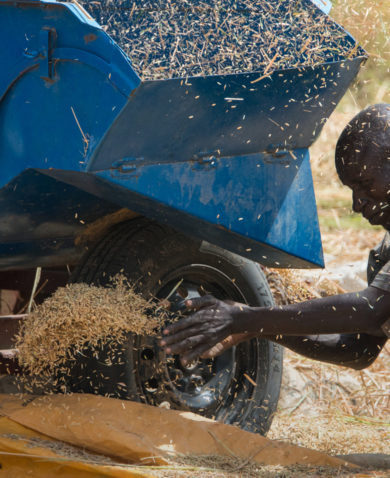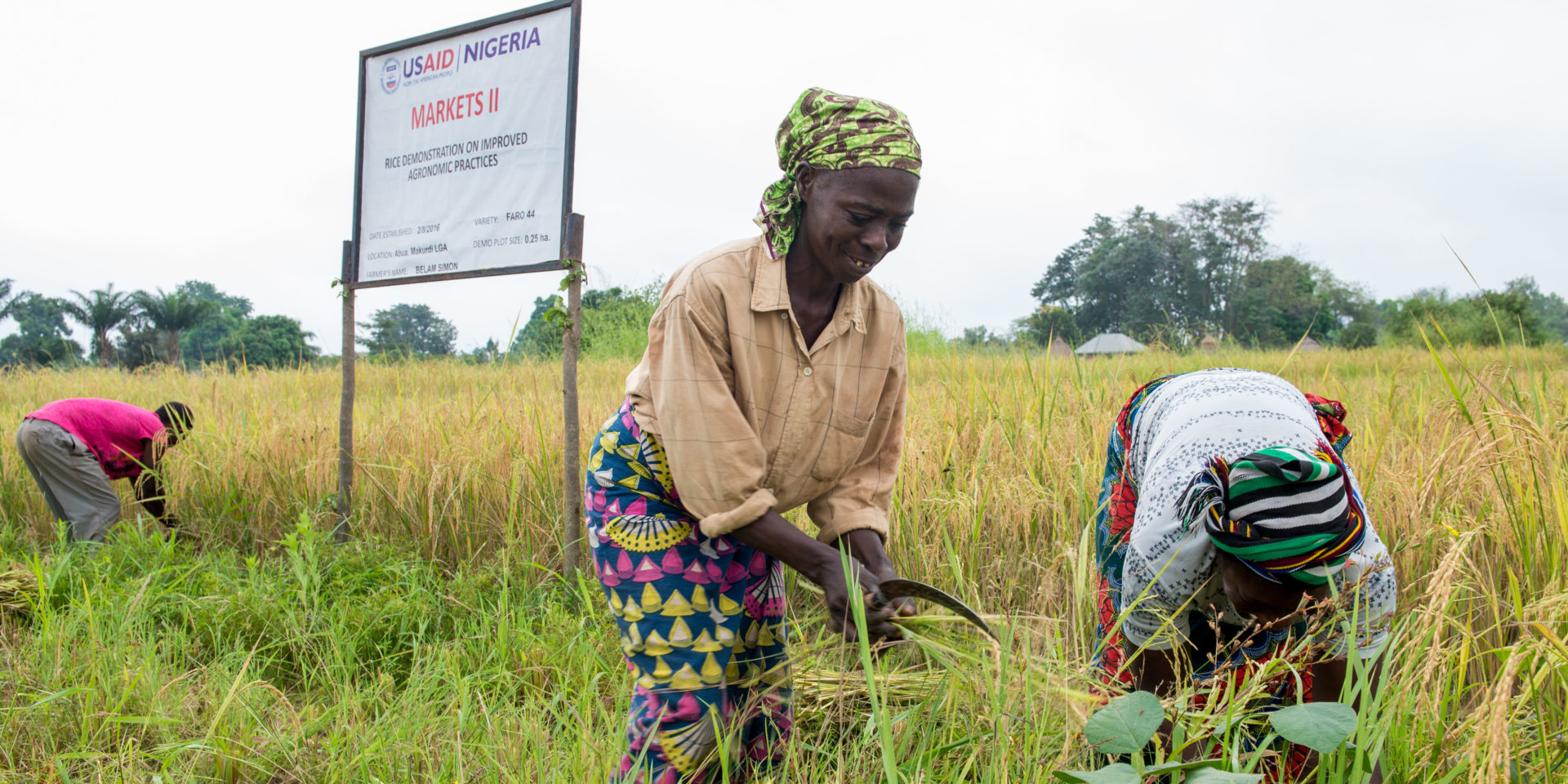
3 Questions with Bassey Archibong: Inclusive Development in Nigeria
August 25, 2016 | 3 Minute ReadWomen and youth make up most of Nigeria's agricultural labor force, but it is hard for women to own land.
USAID’s Maximizing Agricultural Revenue and Key Enterprise in Targeted Sites (MARKETS II) project in Nigeria aims to improve the performance, income, nutrition, and food security of poor Nigerian rural farmers or smallholders in an environmentally friendly manner.
Why is social inclusion important for the development of Nigeria?
In Nigeria, 68 percent of the population lives in poverty, living on less than $1.25 per day, and 66 percent live on less than $1 per day in rural areas. Nigeria’s development will not be complete without the full participation of all its citizens. Women, youth, and people with disabilities especially play important roles in the growth of Nigeria’s economy. For instance, in the non-formal economy, small- and medium-scale enterprises are mostly run by socially excluded and vulnerable populations. In agricultural production, women and youth face serious constraints. Adult men hold land titles in many areas, but women and youth provide most of the agricultural labor.
Legal or institutional barriers such as the Land Use Act of 1978 make it difficult for women to own land. This act gave land ownership to state and local governments. And land is inherited from fathers to sons. Under the law in a substantial part of the country, women are entitled to half the share of their male counterparts. Women’s access to land depends on their marriage status and remaining in their husband’s household. When women work on growing crops that are considered to belong to their husbands, usually cash crops, they have neither access to nor control over the income from the harvest.
Women contribute significantly to household food security from homestead farms. Overcoming the institutional and legal barriers and empowering women economically is significant for the development of the agriculture sector in Nigeria.
What are the biggest challenges you’ve encountered when implementing inclusive interventions?
We have had to overcome many barriers to ensuring the inclusion of people with disabilities and youth in our project activities. We have also seen many barriers to ensuring women’s participation in profitable agriculture and dealing with their limited access to land, finance, extension, and inputs among others. To deal with these, we have conducted training to build the capacity of staff and subcontractors on gender mainstreaming. Our goal is to transform inclusiveness from a development concept into a tool for planning and formulation, resource allocation, implementation, and monitoring.
For instance, we overcame barriers to land access for women by engaging community leaders and husbands to support their wives in farming on family land and engaged traditional leaders to link widowed women to group farms. For those who could not access land, we promoted job creation through service provision along the value chain, such as in grain cleaning, spray groups, packaging, small-scale processing, and marketing.
Similarly, we partnered with the government’s agricultural departments to promote knowledge sharing among women and farmer groups. Specific efforts have been focused on the inclusion of people with disabilities. We have trained and supported 26 groups of people with physical disabilities in the production of maize, sorghum and soybeans. Women, including young women, have received training on bee farming for honey production and to deliver pollination services to soya beans and cocoa crops. Bee farming, apart from providing a nutritious food for families, adds income for beekeeper groups and farmers through the sale of surplus honey and crop pollination.
We are also building the capacity and assets of very poor and vulnerable households by supporting internally displaced persons to generate income through training on integrated micro-enterprise and nutrition in six states.
What are some innovative approaches you’ve taken to include marginalized groups in the project?
We have learned that to have effective, inclusive interventions in agriculture, a team must first seek to understand the barriers faced by vulnerable groups that negatively impact production, incomes, and food security. They need to develop an integration plan and commit to overcome these barriers. The team must also use an integration or inclusion plan to design a program for participation of women, youth, people with disabilities and other vulnerable groups in profitable agricultural activities along the value chain. And it is important to explore the entire value chain; agriculture is more than crop farming. Some activities that are easier entry points for excluded groups, such as farm support services and micro- or small-scale processing activities. It is also important to remember that inclusion is not a one-time activity; total engagement with all stakeholders has to be consistent.







